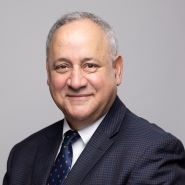U.S. Supreme Court Holds Copyright Act's Three Year Statute of Limitations Does Not Limit Damages for an Otherwise Timely Claim
- May 9, 2024
- Article
Associated People
In Warner Chappell Music, Inc. v. Nealy, 601 U.S. ___ (May 9, 2024), the U.S. Supreme Court held that the Copyright Act’s three-year statute of limitations does not limit the damages available for otherwise timely claims.
The dispute arose from a music venture in 1983 when Sherman Nealy and Tony Butler formed Music Specialist, Inc. and recorded one album and several singles. The collaboration dissolved, and Nealy then did two stints in prison for drug-related offenses.
Meanwhile, Butler entered into an agreement with Warner Chappel Music, Inc. to license works from the Music Specialist catalog, and Warner Chappell successfully licensed several of the works to various prominent recording artists.
Following his second prison stint, Nealy sued Warner Chappell for copyright infringement alleging that Warner Chappell’s licensing activities infringed his rights in the works dating back to 2008 or ten years before he brought suit. The Copyright Act requires that a plaintiff file suit within “three years after the claim accrued.” § 507(b). “On one understanding of that limitations provision, a copyright claim ‘accrue[s]’ when ‘an infringing act occurs.’” Slip op. at 2 (quoting Petrella v. Metro-Goldwyn-Mayer, Inc., 572 U.S. 663, 670 (2014)). However, under the “discovery rule” applied by courts within the Eleventh Circuit where Nealy filed suit, a claim accrues when “’the plaintiff discovers, or with due diligence should have discovered,’ the infringing act.” Id. Under the discovery rule, Nealy could raise claims based on very old infringements if he discovered them within the three years preceding the lawsuit.
Although the District Court ruled that the discovery rule applied to the timeliness of Nealy’s claim, it held that “even when claims for old infringements are timely, monetary relief is ‘limited’ to ‘three years prior to the filing’ of the action.” This meant Nealy could bring claims for infringing acts beyond the three-year period but could not recover damages for those claims.
On an interlocutory appeal, the Eleventh Circuit reversed rejecting the notion of a three-year damages bar on a timely claim. “Allying itself with the Ninth rather than the Second Circuit, the court held that a plaintiff with a timely claim under the discovery rule may obtain ‘retrospective relief for [an] infringement’ even if it ‘occurr[ed] more than three years before the lawsuit’s filing.’” Slip op. at 3 (quoting 60 F. 4th 1325, 1331 (2023) (citing Starz Entertainment v. MGM, 39 F. 4th 1236, 1244 (9th Cir. 2022)).
Because the applicability of the discovery rule was not challenged below, the U.S. Supreme Court considered the limited issue of whether a timely claim under the discovery rule can get damages going back more than three years. Slip op. at 4-5. The Supreme Court ruled that the plain language of the Copyright Act makes clear that there is no time limitation on the recovery of damages for an otherwise timely claim. The statute of limitations within the Act, the so-called “time-to-sue prescription,” “establishes no separate three-year period for recovering damages . . ..” Slip op. at 5. The Act’s remedial provisions also do not include a time limitation on damages.
“They state without qualification that an infringer is liable either for statutory damages or for the owner’s actual damages and the infringer’s profits. See § 504(a)-(c). There is no time limit on monetary recovery. So a copyright owner possessing a timely claim for infringement is entitled to damages, no matter when the infringement occurred.”
Slip op. at 5.
The Supreme Court expressly rejected the Second Circuit’s three-year damages limitation for timely claims under the discovery rule as lacking textual support and as gutting or silently eliminating the discovery rule. “The Copyright Act contains no separate time-based limit on monetary recovery.” Slip op. at 7.
In dissent, Justice Gorsuch (joined by Justices Thomas and Alito) argued that the Court should not have side-stepped the antecedent question of whether the Copyright Act authorizes a discovery rule for accrual of claims. The discovery rule should only apply in cases of fraud or concealment, Slip op. at 2 (Gorsuch, J., dissenting) (citing TRW Inc. v. Andrews, 534 U.S. 19, 27 (2001)), neither of which was alleged by Nealy. Justice Gorsuch “would have dismissed the case as improvidently granted and awaited another squarely presenting the question whether the Copyright Act authorizes the discovery rule. Better, in my view, to answer a question that does matter than one that almost certainly does not.” Slip op. at 3 (Gorsuch, J., dissenting).
Recent Publications
5 IP Rules to Know to Protect Your Business in the United States (article in French)
Coaching INPI Newsletter










 Counseling & Strategic Advice
Counseling & Strategic Advice IP Transactions
IP Transactions Litigation
Litigation PTAB Proceedings
PTAB Proceedings Start-Up
Start-Up Technology Transfer
Technology Transfer Trademark & Designs
Trademark & Designs U.S. Patent Procurement (Application Drafting & Prosecution)
U.S. Patent Procurement (Application Drafting & Prosecution)








